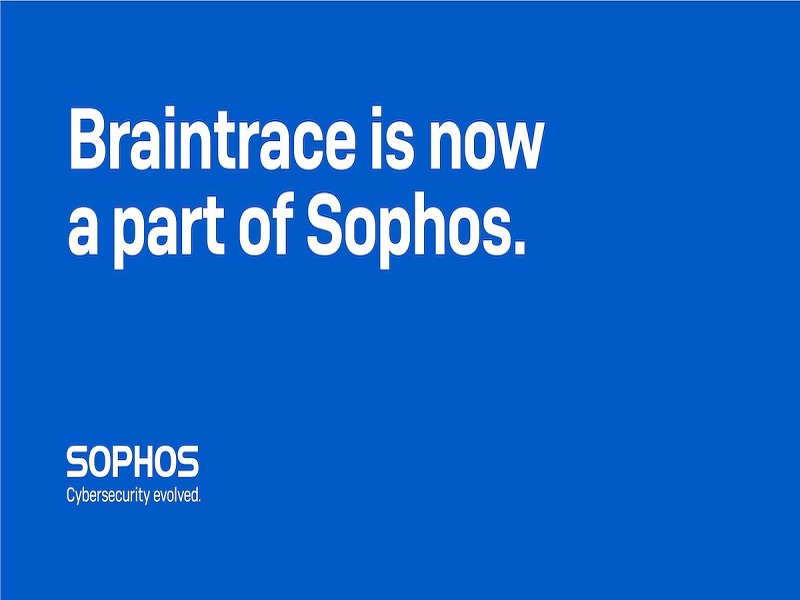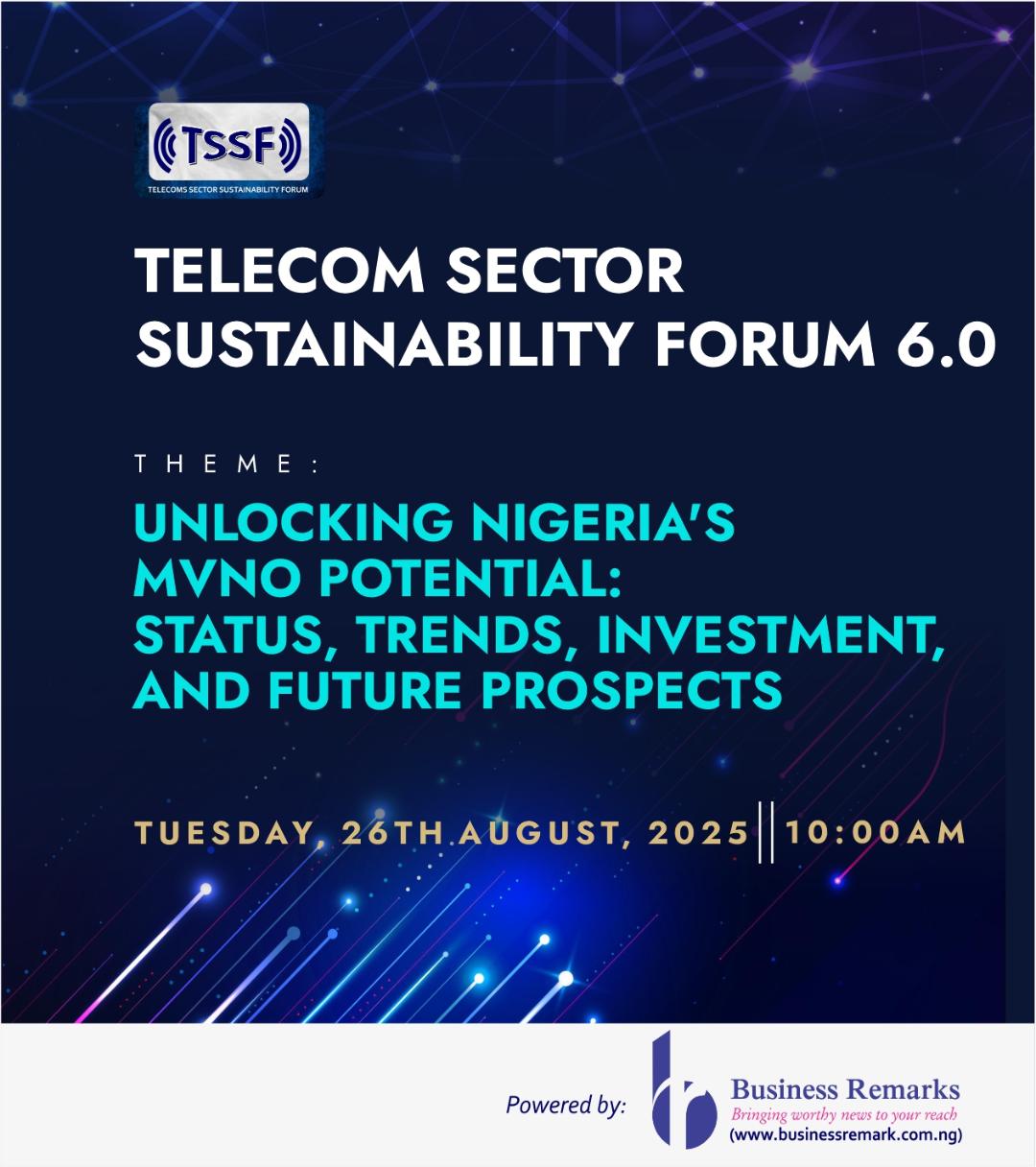Telecom
Sophos Acquires Braintrace to Boost Adaptive Cybersecurity Ecosystem

Sophos, a global leader in next-generation cybersecurity, today announced that it has acquired Braintrace, further enhancing Sophos’ Adaptive Cybersecurity Ecosystem with Braintrace’s proprietary Network Detection and Response (NDR) technology.

Braintrace’s NDR provides deep visibility into network traffic patterns, including encrypted traffic, without the need for Man-in-the-Middle (MitM) decryption.
Located in Salt Lake City, Utah, Braintrace launched in 2016 and is privately held.
As part of the acquisition, Braintrace’s developers, data scientists and security analysts have joined Sophos’ global Managed Threat Response (MTR) and Rapid Response teams.
Sophos’ MTR and Rapid Response services business has expanded rapidly, establishing Sophos as one of the largest and fastest-growing MDR providers in the world, with more than 5,000 active customers.
Braintrace’s NDR technology will support Sophos’ MTR and Rapid Response analysts and Extended Detection and Response (XDR) customers through integration into the Adaptive Cybersecurity Ecosystem, which underpins all Sophos products and services.
The Braintrace technology will also serve as the launchpad to collect and forward third-party event data from firewalls, proxies, virtual private networks (VPNs), and other sources.
These additional layers of visibility and event ingestion will significantly improve threat detection, threat hunting and response to suspicious activity.
 Joe Levy, chief technology officer, Sophos
Joe Levy, chief technology officer, Sophos
“You can’t protect what you don’t know is there, and businesses of all sizes often miscalculate their assets and attack surface, both on-premises and in the cloud. Attackers take advantage of this, often going after weakly protected assets as a means of initial access. Defenders benefit from an ‘air traffic control system’ that sees all network activity, reveals unknown and unprotected assets, and exposes evasive malware more reliably than Intrusion Protection Systems (IPS),” said Joe Levy, chief technology officer, Sophos. “We’re particularly excited that Braintrace built this technology specifically to provide better security outcomes to their Managed Detection and Response (MDR) customers. It’s hard to beat the effectiveness of solutions built by teams of skilled practitioners and developers to solve real world cybersecurity problems.”
Sophos will deploy Braintrace’s NDR technology as a virtual machine, fed from traditional observability points such as a Switched Port Analyzer (SPAN) port or a network Test Access Point (TAP) to inspect both north-south traffic at boundaries or east-west traffic within networks.
These deployments help discover threats inside any type of network, including those that remain encrypted, serving as a complement to the decryption capabilities of Sophos Firewall.
The technology’s packet and flow engine feeds a variety of machine learning models trained to detect suspicious or malicious network patterns, such as connections to Command and Control (C2) servers, lateral movement and communications with suspicious domains.
Since Braintrace built its NDR technology specifically for predictive, passive monitoring, its engine also provides intelligent network packet capture that IT security administrators and threat hunters can use as supporting evidence during investigations. The novel NDR analysis and prediction technique is patent pending.
According to Gartner, “compared with traditional approaches, where malicious behavior is defined ahead of time in the form of prebuilt signatures and detection engines inspecting traffic looking for matches, NDR takes a different approach. Instead of only inspecting traffic against a list of known bad payloads or behaviors, NDR also focuses on looking for unknown patterns in the network traffic, calculating a probability as to whether that anomaly is malicious.”
Gartner further notes that, “the machine learning algorithms that are at the core of many NDR products help to detect anomalous traffic that is often missed by other detection techniques. The optional automated response capabilities help to offload some of the workload for incident responders. The threat hunting functionality provides valuable tools for incident responders.”
“NDR is critical to successful threat hunting. Braintrace’s competitive differentiation is its unique NDR technology that our MDR analysts leveraged for finding, interrupting and remediating cyberattacks,” said Bret Laughlin, CEO and co-founder of Braintrace. “With our own NDR technology, the team responds faster and more accurately because of the real-time, automated visibility and threat verification they have into encrypted traffic. We built Braintrace’s NDR technology from the ground up for detection and now, with Sophos, it will fit into a complete system to provide cross-product detection and response across a multi-vendor ecosystem.”
 British cybersecurity software and hardware company Sophos Group plc’s Silicon Valley office in Santa Clara, California by Gettyimages
British cybersecurity software and hardware company Sophos Group plc’s Silicon Valley office in Santa Clara, California by Gettyimages
Braintrace’s NDR technology is a key component for defending against cyberattacks today and in the future. Sophos research demonstrates how adversaries aggressively and constantly change tactics to evade detection and execute their attacks.
Braintrace’s technology helps uncover malicious C2 traffic from malware, such as ColbaltStrike, BazaLoader and TrickBot, as well as zero-days, that could lead to ransomware and other attacks.
This visibility allows threat hunters and analysts to pre-empt any potential ransomware attack, including recent strikes by REvil and DarkSide.
Sophos plans to introduce Braintrace’s NDR technology for MTR and XDR in the first half of 2022.
Telecom
NCC Wins Global ICT Award for Digital Awareness in Schools

Nigeria, through the Nigerian Communications Commission (NCC), has won the 2025 World Summit on the Information Society (WSIS) prize for its project, the Digital Awareness Programme (DAP), under Category C3, which is on Access to Information and Knowledge.

L–R: Executive Vice Chairman/CEO of the Nigerian Communications Commission (NCC), Dr. Aminu Maida, receives the WSIS 2025 Prize (Category C3: Access to Information and Knowledge) from the Secretary-General of the International Telecommunication Union (ITU), Doreen Bogdan-Martin, following the selection of the Commission’s Digital Awareness Programme (DAP) as winner of the category.
The DAP, one of hundreds of projects submitted for the WSIS Prizes competition 2025, received the highest number of votes in its category, earning it the top honour. The programme equips secondary schools across the country with Information and Communication Technology (ICT) resources and provide internet connectivity to support teaching, learning, and research. Since inception in 2006, over 300 schools across Nigeria’s six geopolitical zones have benefitted from the programme.
The Executive Vice Chairman of the NCC, Dr. Aminu Maida, received the award during the WSIS Prizes Winners 2025 Ceremony held on Monday in Geneva, Switzerland.
In his acceptance remarks, Dr. Maida thanked the hosts, the International Telecommunications Union (ITU) and WSIS, for recognising Nigeria’s efforts in promoting inclusive digital access across Nigeria, noting that the award would serve as further motivation for the Commission.
“This recognition is more than a celebration of past efforts—it is an encouragement to press forward. It affirms that investing in digital inclusion is investing in national development, and that Nigeria’s work is being seen and valued on the global stage,” Dr. Maida said.
Four other Nigerian projects—the Women Techsters and the Advanced Digital Empowerment Programme for Tertiary Institutions (ADEPTI) under Capacity Building, the Telecom-Based Research Grant Initiative under Enabling Environment, and the Digital Learning Initiative under e-Learning—were also celebrated for their nomination for the Champions Category of Projects at the WSIS Prizes Ceremony. Although they were not among the top-voted entries, they were acknowledged for their significant merit and impact.
The WSIS Prizes competition recognises and promotes projects that effectively leverage ICTs to advance sustainable development. The competition showcases how technology can serve as a powerful tool for addressing global challenges and achieving the SDGs. Projects from around the world are recognised annually, highlighting diverse approaches to building an inclusive information society.
The World Summit on the Information Society (WSIS) is a United Nations (UN) initiative aimed at building a people-centred, inclusive, and development-oriented information society. It provides a multi-stakeholder platform to address issues related to Information and Communication Technologies (ICTs) and their role in achieving sustainable development.
The Forum is an annual event that brings together high-level representatives from governments, the private sector, civil society, academia, the technical community, and international organisations. It serves as a global platform for implementing the WSIS Action Lines, which are aligned with the UN Sustainable Development Goals (SDGs).
Telecom
No More Excuses: NCC Sets Tough August Deadline to Tackle Telecom Hitches

Nigerian Communications Commission (NCC) has given telecom tower operators in the country August 2025 deadline to fix persistent network hitches in their facilities or face regulatory sanctions.

The Executive Vice Chairman (EVC) of the commission, Dr. Aminu Maida, reportedly gave the ultimatum during a high-level meeting with key industry players, attended by representatives of IHS Towers, American Tower Corporation (ATC), and Pan-African Towers, and mobile network operators (MNOs) in Abuja
According to sources, discussions at the meeting focused on the recurring challenges in the telecoms sector, particularly power failures, equipment malfunctions, and insufficient site maintenance, that have been causing poor Internet and call services in the country
Specifically, Maida tasked the tower operators on the imperative of complying with the NCC’s updated Quality of Service (QoS) framework, which now extends performance obligations to infrastructure providers, not just telecom service providers.
According to him, the timeline given by the commission is more than enough time for all parties to align with the performance standards expected of them.
Recently, to ensure compliance with the standards, the NCC introduced a Major Incident Reporting Portal for real-time outage disclosures; developed public performance dashboards to enhance transparency; mandated that telecom tower companies meet strict Key Performance Indicators (KPIs).
Although the tower operators had previously cited delayed payments from MNOs as a reason for service lapses, the NCC had dismissed the justification, insisting that all parties must meet their obligations.
The EVC maintained: “Operators must fulfill both their technical and financial responsibilities. Poor service delivery—regardless of internal disputes—will attract consequences.”
Available data on the telecom tower infrastructure shows that IHS Towers has the largest assets with 16,000–19,000 sites, (62% market share); compared to American Tower Corp’s (ATC’s) about 8,270 towers; and Pan-African Towers’ 760–1,000 sites nationwide.
The latest NCC’s August deadline is believed to be putting pressures on the tower operators to improve the quality of their facilities for improved services as the commission had hinted of its plan to sanction defaulting operators with fines or stricter regulatory actions.
Industry experts believe that the NCC’s directive is a welcomed development as it will ensure reliable Internet connectivity and improved services quality for telecom consumers in the country.
Telecom
NCC to Chart MVNO Growth Path at Telecom Sustainability Forum 6.0

Nigerian Communications Commission (NCC) is set to play a pivotal role at the upcoming 6th edition of the Telecom Sector Sustainability Forum (TSSF 6.0), where it will lead a critical discussion on the sustainable growth of Mobile Virtual Network Operators (MVNOs) in Nigeria.

Set against a backdrop of innovation and opportunity, this forum, organized by Business Remarks, aptly themed “Unlocking Nigeria’s MVNO Potential: Status, Trends, Investment, and Future Prospects,” is scheduled for August 26, 2025. This event reinforces the nation’s commitment to fostering a robust, competitive, and inclusive telecommunications landscape.
The forum will bring together a diverse array of key stakeholders from across the telecom ecosystem to deliberate on strategies for integrating MVNOs effectively into Nigeria’s rapidly evolving digital economy. With the recent advancements in technology and the issuance of 43 MVNO licenses to new players, MVNOs are poised to significantly enhance service delivery, drive digital transformation, penetrate underserved markets, and stimulate healthy competition across the sector.
As the global MVNO market is experiencing significant growth, with projections indicating continued expansion, experts believe that with the right regulatory environment and access to infrastructure, emerging markets like Nigeria can leverage MVNOs to unlock new value for both operators (by utilizing excess network capacity) and customers. Customers can enjoy a rich array of niche value-added services tailored to their needs.
Having been proactive in introducing a five-tier MVNO licensing classification, each with distinct services and a 10-year validity period, signaling a clear path for new entrants, the telecom regulator (NCC) will deliver a keynote address outlining the Commission’s regulatory framework, interventions, and commitment to ensuring a conducive environment for MVNO operations.
Mrs. Bukola Olanrewaju, Convener of the forum and Managing Editor of Business Remarks, emphasized the importance of collaboration. “TSSF 6.0 is designed to be a melting pot of ideas, bringing together Mobile Network Operators (MNOs), MVNOs, telecoms infrastructure providers, Internet Service Providers, industry associations, and technology experts,” she said.
“Our goal is to ignite discussions that will shape the future of MVNOs in Nigeria, ensuring their sustainable growth and their critical role in extending digital prosperity across the nation.”
The forum will feature interactive sessions, thought-provoking panel discussions, insightful paper presentations, and abundant networking opportunities. This event aims to provide a platform for stakeholders to share insights, address challenges, and explore collaborative pathways for sustainable growth.

 Telecom1 day ago
Telecom1 day agoY’ello Care’s 21-Day Campaign Bridges Digital Divide for Thousands Nationwide

 General News1 day ago
General News1 day agoEnugu Air Commences Operations Today

 E-Business1 day ago
E-Business1 day agoGalaxy Backbone, Rural Electrification Agency Commit to Deepening Digital and Energy Access Across Nigeria

 Broadcasting1 day ago
Broadcasting1 day agoNDPC Slaps Multichoice with ₦766M Fine for Data Privacy Violations

 News1 day ago
News1 day agoLagos-Calabar Highway Gets $100M Push from ECOWAS to Drive Regional Growth

 Telecom1 day ago
Telecom1 day ago20 Years of Digital Leadership: Layer3’s Legacy and the Road Ahead

 News1 day ago
News1 day agoNBS May Release Rebased Figures for Nigerian Economy July 11

 News41 minutes ago
News41 minutes agoNnamani, CEO Digital Realty Nigeria Bags Digital Economy Icon of the Year @ Digital Innovation Awards in Ghana


























